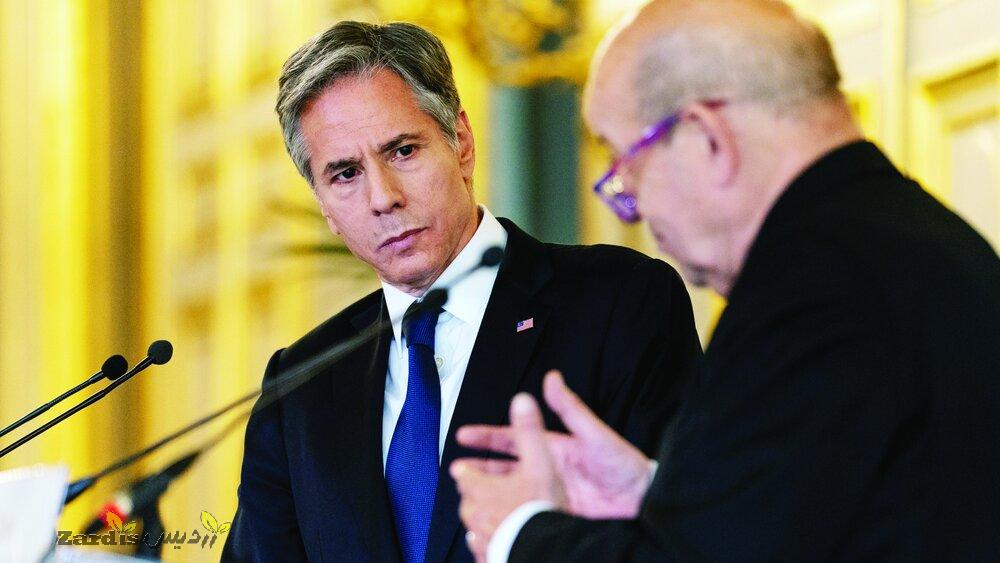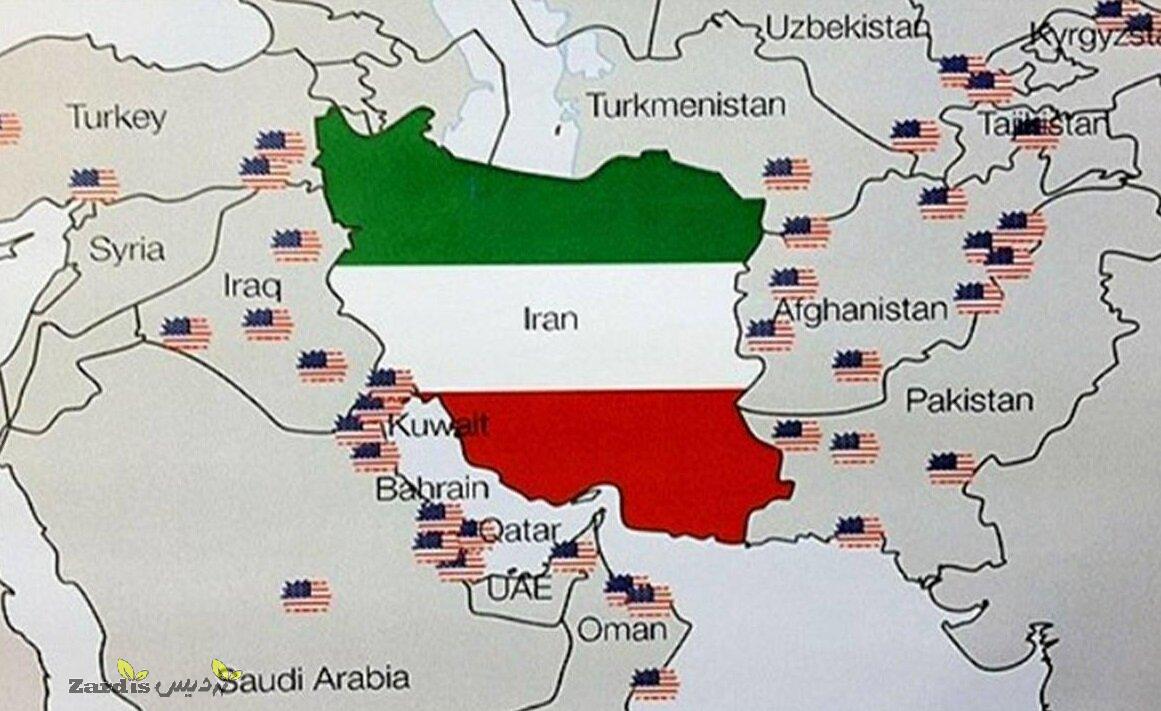TEHRAN — In an article published on November 23, 2020 on the Politico website titled “9 things to know about Antony Blinken, the next U.S. secretary of state”, Blinken was projected as a man with no flaws.
In a subhead the article also called Blinken a “Francophone and –phile.” Now, we want to study how this man, stabbed not just France, but an entire continent in the back.
In 2016, France and Australia signed a deal worth of $40, which required France to provide Canberra with submarines, according to Reuters.
On Wednesday, September 15, Australia, the United Kingdom, and the United States signed a trilateral partnership titled AUKUS. It was meant to provide Canberra with nuclear-propulsion technology for submarines. So easy, so simple, so elegant. Or so it seemed.
The pact created a huge controversy all around the world, from China to the EU and the United Arab Emirates. The UAE foreign minister traveled to France on September 15 and the UK on September 16.
The friends and allies’ mistrust of the U.S. is growing into a big tumor
According to the joint statement released by the French and Emirati leaders, the visit took place upon invitation by the French side. Yet, the move is considered by many political analysts as an attempt to form an alliance, and respond to the U.S. “stab in the back.”
“The French President and His Highness expressed their shared ambition to make the bilateral partnership deeper, broader, more multilateral, and with increased people-to-people exchanges.
They thus reaffirmed their enduring commitment to Louvre Abu Dhabi museum. In the field of economy, they welcomed the increasing co-operation between France and the UAE.
They also called for broadening the partnership to new areas. They welcomed the agreement between Institut du Monde Arabe and the Abu Dhabi Arabic Language Centre – Department of Culture and Tourism to co-operate on an Arabic Language certificate,” according to the statement released by the French foreign ministry.
As for the UK visit, much of the focus was on the UAE-UK Sovereign Investment Partnership, in which the UAE will funnel £10 billion ($13.8bn) over five years into promising companies that operate in the clean energy, technology and infrastructure industries.
The Times said the deal builds on the UAE’s previous decision to invest £800 million in the UK’s life sciences industry made in March.
The Financial Times said UAE investment under the framework had already reached £1.1bn in UK companies and funds, including £500m in CityFibre, a telecoms infrastructure group.
Can you really blame the UAE? Well, if the U.S. can ditch their longtime friend, the European Union, the UAE can be thrown in the trash can in no time.
The friends and allies’ mistrust of the U.S. is growing into a big tumor. In our Saturday report, titled “U.S. couldn’t care less about EU: Will Europe learn the lesson?”, the Zardis News advised the EU to act independently.
Blinken, a guy highly admired by the American and European think tanks, who was renowned for his reputation of multilateralism and being a “Europeanist,” ducked the country he had been studying in, and had an emotional connection to. France had hosted Blinken and his half-sister in the past, and now the French feel betrayed.
On September 17, France recalled its ambassadors to the U.S. and Australia for “further consultations”.
A spokesperson for Australia’s foreign affairs minister, Marise Payne, said, “Australia understands France’s deep disappointment with our decision, which was taken in accordance with our clear and communicated national security interests.”
She also said that Australia values its relationship with France, “which is an important partner and a vital contributor to stability, particularly in the Indo-Pacific. This will not change.”
The spokesperson said Australia and France share many issues of interest and “we look forward to engaging with France again.”
The AUKUS pact turned the attention of political commentators and analysts to a theory first put forward in 2013, and renewed by EU foreign policy chief Josep Borrell in December 2020.
“Because the world has changed. It is difficult to claim to be a ‘political union’ able to act as a ‘global player’ and as a ‘geopolitical Commission’ without being ‘autonomous.’ What are then the factors that make this concept more relevant than ever?” Borrell asked in his article titled “Why European strategic autonomy matters”.
In the article published on the EU website, he added, “The first is that the weight of Europe in the world is shrinking. Thirty years ago, we represented a quarter of the world’s wealth. It is foreseen that in 20 years, we will not represent more than 11% of world GNP, far behind China, which will represent double it, below 14% for the United States and at par with India.”
Borrell also discusses “the transformation of economic interdependence,” as the Europeans have greatly invested on, particularly through “the defense of multilateralism”.
“Today we are in a situation where economic interdependence is becoming politically very conflictual. And what was traditionally called soft power is becoming an instrument of hard power,” he cautioned.
The theory of European strategic autonomy seems to be pursued more strictly than before, in view of Washington’s betrayal of the European bloc by forming an Angelo-Saxon alliance. Washington did it without informing the EU. In the words of French Foreign Minister Le Drian it is a “breach of trust”.
The AUKUS pact came as a blow to France’s economy. They lost a major economic deal. Some say they lost over $56 billion, some say $66 billion, and the Guardian even went on to say that France lost a $90 billion deal.
France had signed a deal with Australia to provide submarines for them in 2016, but with the AUKUS pact, Australia cancelled the deal with France. Some anonymous users on Twitter started defending the Australian decision, saying that it was best to cancel the deal, as France was going to provide Australia with diesel-powered submarines. A user mentioned Gerard Araud, the former French ambassador to the United States, as saying, “Well you should look on the reasons why the Sub have been replaced. Hardly a diesel is good especially based on a french engine. Also you talk about borders and Brexit. Happy to block the Italian border but yet you do not stop boats leaving bound for the UK.”
Araud, who has been famous for his upfront answers on Twitter, said, “The diesel was a Australian demand. Our submarines are nuclear powered! We could have easily provided nuclear powered submarines if we had been asked. We weren’t.”
He even went so far to say that France has to reassess its foreign policy in the Indo-Pacific region, considering “the seriousness of the blow which has been delivered to our industrial and strategic interests.” Araud suggested these changes to be made in relations with the United States and NATO as well. Another sign of the existing tumor of mistrust among the U.S., and UK allies and friends. They all seem to be going into other directions.
Another important factor in the AUKUS deal, which shall not be forgotten, is Liz Truss, former international trade secretary, and current Secretary of State for Foreign, Commonwealth and Development Affairs of the United Kingdom. According to Politico website, Truss shook on the AUKUS deal. The website also says that Truss “rolled over EU deals with 63 nations.”
Her appointment as UK foreign minister suggests that the backstabbing could be continued. With her architecting such deals, the EU must be vigilant towards the U.S. and UK, and not put all their eggs in their baskets.
SA/PA
- News code 32477
- 250 View
- بدون نظر
Zardis news | The latest news of Iran and the world
تمامی حقوق مطالب برای Zardis news محفوظ است و هرگونه کپی برداری بدون ذکر منبع ممنوع می باشد.
طبق ماده 12 فصل سوم قانون جرائم رایانه ای کپی برداری از قالب و محتوا پیگرد قانونی خواهد داشت.
طراحی و اجرا: سامانه سایت ساز زردیس







